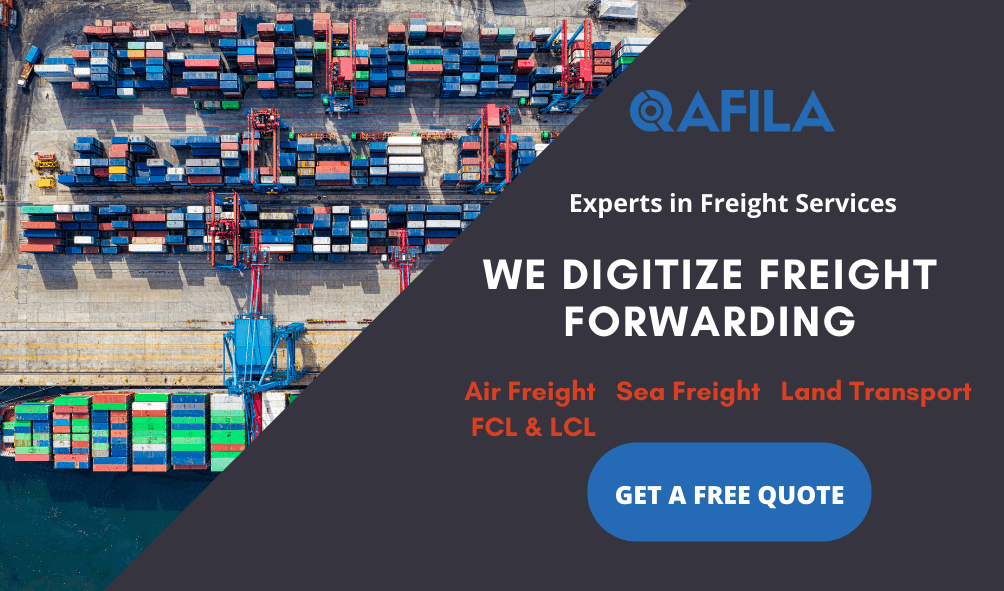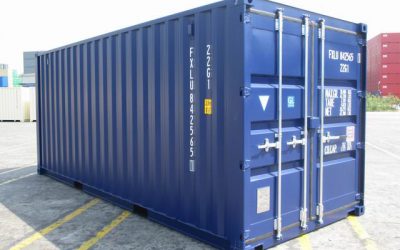All You Need to Know About Fourth Party Logistics
Table of Contents
What is a fourth-party logistics provider?
In simple words, 4PL is the outsourcing of logistics activities to a single partner. For the customer, the single partner administers and runs the supply chain by looking after the warehouse operations, shipping organizations, cargo forwarders, and agents.
Solutions a 4PL offers:
Companies these days are currently looking to rely on a single corporation which could offer all the supply chain solutions, including
- Surveying
- Planning
- Assembling
- Running
- Measuring
- Cargo sourcing techniques
- Consultancy
- Business management
- Control tower and network administrations, planning to supply centers across numerous modes and geologies
- Inventory planning
- Inbound, outbound, and reverse logistics
This advancement in the supply chain for further managing resources, technology, infrastructure, and even manage external 3PLs to design, build, and provide supply chain solutions for businesses is Fourth-party Logistics or 4PL.
What does a fourth party logistics do?
A reliable Fourth-logistics supplier can add value and provide a strategic way to deal with your company as it can manage all the logistics operations. 4PL is the central point of contact looks after not just any single component but all of the logistics procedures.
A 4PL can impact the whole supply chain, and its arrangement means to oversee
- Individuals
- procedures
- technology.
Why should a company go for its services?
The 4PL supplier usually offers a better understanding of logistics procedures.
A manufacturer or producer can take the assistance of a 4PL to outsource the logistics tasks. For instance, the 4PL may handle the farmer’s communication to increase or decrease the amount of raw material according to the stock in the inventory.
A 4PL supplier is a supply chain integrator. Some of its characteristics are:
- 4PL is appropriate for medium and large-sized organizations
- 4PL oversees and run all operations inside the supply chain
- 4PL keeps a single touchpoint for all its activities
How can it help?
Embracing the assistance of a 4PL reduces cost and brings a better outlook on operations, open doors to new strategies, leads to better experience and innovation in the current in-house work.
Moreover, Fourth-party logistics offers an elevated level of supply chain services to its customers. The 4PL gives its customers a “control tower” perspective on their supply chains by taking care of the warehouse operations, shipping procedures, etc.
The objective of a 4PL:
The objective of 4PL is to provide a single link between all parts of the supply chain and the customer association. A 4PL can set up a joint project or a contract between an essential customer and various partners to oversee transportation for particular areas or similar business lines.
The structure of a 4PL can fluctuate, as there can be a 4PL part inside a big 3PL contact. A 4PL is a type of business measure outsourcing, like contracting out HR or financial functions.
Lead Logistics Partner:
Usually, the 4PL doesn’t possess transportation or distribution center resources. Instead, it organizes those parts of the supply chain with sellers. The 4PL can organize operations of different 3PLs that handle various aspects of the supply chain. A 4PL additionally might be known as a Lead Logistics Partner (LLP), as per the CSCMP.
What are the responsibilities of a fourth-party logistics provider 4pl?
A 4PL can help unite your logistics operations. It facilitates and improves all logistics activities and joins those exercises with different businesses, including acquirement, deals and promoting, marketing, finances, client support, and data innovation.
Regarding all the factors, the amount and kind of data accessible through technology, and the analysis of the combinations and possibilities of logistics is a vast and cha llenging job that will keep on advancing as global trade develops and enhances.
Some of its other responsibilities are:
- A 4PL organization is a supply chain services supplier that looks for the best supply chain strategies for its customer organizations.
- It uses its own assets and moves operations to different 3PL organizations.
- It acts as an integrator that organizes the resources, capacities, and innovation of its own association and different associations to create, construct and run exhaustive supply chain operations smoothly
- This is another choice to off-shoring or foreign outsourcing
- 4PL utilizes technology and reconfigure other external assets, for example, 3PLs, to deal with all supply chain operations as agreed upon with the customer.
- 4PL services are more administrative in scope and are more centred around the inclusion of the operations of an organization and the use of technology. This permits 4PL services to give
- more prominent efficiencies,
- Cost-effective funds,
- Linear manufacturing
- Inventory management
- Better distribution
- 4PL may also provide assessment and analysis of customer feedback and offer reverse supply chain services.
Third-party logistics vs. fourth-party logistics
In case your organization is managing a complex supply chain and trying to meet the demands of the customers for quicker response, at that point, adopting a 3PL or 4PL might be the best answer for you.
This step can help gain a competitive edge in the market. So, what to choose, really, the services of a 3PL or a 4PL? It can be tough too.
Below we have discussed the difference between a 3PL and a 4PL to make it easy for you to:
3Party Logistics or 3PL:
In a 3PL model, an organization keeps running the management; however, it outsources the functions of transportation and logistics to a service provider who may further hire other companies or subcontract a few or all the operations. Other services, including crating, boxing, and bundling to increase the value of the supply chain, can also be provided. For instance, a 3PL could assist in packing and moving the raw material from the farm to the market.
4PL or Fourth-Party Logistics:
In a 4PL model, an organization outsources the management and the execution of logistics operations all across the supply chain. The 4PL supplier commonly offers a better perspective and outlook over the supply chain operations. A manufacturer will utilize a 4PL to basically re-outsource its whole logistics activities.
What Type of companies use fourth-party logistics?
4PLs for Medical Devices
For a single medical-device producer, a network of warehouses can be developed to provide medical service to hospitals and surgery centers. Moreover, reverse logistics and restocking of unused items can also be provided by a 4PL. Other services may include:
- Manages the maintenance and documentation
- Takes care of the delivery schedule and provides just in time medical services
- Manages the inventory
- Removes cost write-offs
- Improves medical services
4PLs for Field Service
To serve field administration fix companies, 4PL assumes responsibility for the supply chain, including
- Warehousing
- Order fulfillment
- Transportation and technological integration.
4PL can act as a perfect model for a field service business. The procedure starts with the assessment of parts usage evaluated on the basis of historical information and installed client base to decide every part, numbers, and areas important to fulfilling the expected needs. Other services may include
- Offers efficient inventory management to decrease trunk stock
- Keeps the inventory close to the field of technology
- Provides real-time tracking of the inventory
The field specialists don’t need to work as inventory managers any longer. Parts locations and inventories are observable to all the specialists in the district, diminishing the requirement for van stock.
4PLs for Retail/E-Commerce
The biggest internet business organizations act as their own 4PLs by claiming and dealing with the whole supply chain. Not many organizations have the assets to do that, so they go to 4PLs for key administration.
For the past few years, numerous retailers have used the services of 4PLs for transportation, warehousing, and order fulfillment. As online business developed and became popular among the public, retailers integrated such abilities to the existing frameworks, making similar supply chains to meet the product demand. Once the e-commerce business booms, it’s become necessary that an omnichannel approach is a feasible course to help customers, etc.
A 4PL offers a crucial vision to make another supply chain network that effectively deals with the progression of an item over all stages.
A single perspective on inventory enables the retailer to designate stock and fulfill customer needs. Forward-conveyed inventory can serve both in-store locations and internet business order fulfillment. For stores, the forward arrangement provides same-day stock renewal and online request fulfillment from a similar area.

Advantages of 4PL
4PLs are a generally new idea, yet generally, medium to large organizations tend to be more inclined towards its idea. Associations are interested in the 4PL option since it can improve their primary concerns through efficient and sustainable business measures. They are usually looking for all logistics services for both operations and planning. Other advantages it provides include:
- Outsources all the logistics operations of a business
- Along with the operational support, a 4PL also provides strategic perspectives.
- Provides better access to a more extensive base of suppliers
- Assists in developing Back-end framework joining
- Offers better transparency for products and services
- Offers standardization and automation of demands
- Can lead to cost-effective operations
- Give quicker responses
Cons of 4PL
The companies shouldn’t go down this street except if the current supply chain is powerful and the team is adequately experienced to adapt to an altogether different method of doing business. Otherwise, it can be:
- Little power over logistics and fulfilment measures
- Can be costly






